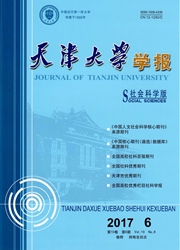

 中文摘要:
中文摘要:
针对新生代员工,构建内职业成熟度对离职倾向的影响关系模型,运用相关分析和层次回归方法,对内职业成熟度对离职倾向的作用机理进行了实证分析。探讨了内职业成熟度与离职倾向关系中两个重要调节变量:自我职涯管理和职业承诺。结果表明:内职业成熟度四个维度对离职倾向均存在显著影响;随着新生代员工职业承诺程度的提高、自我职业生涯管理水平的提高,他们对职业价值和职业目标、职业自主和职业自信就有越高的要求,更有可能因为自身内职业成熟度得不到提升而有更高的离职倾向。
 英文摘要:
英文摘要:
In order to construct the relation model of the influence of professional maturity on turnover intention for new generation employees, this paper makes an empirical research on the action mechanism of professional maturity to turnover intention with the method of relevant analysis and hierarchical regression. Two important regulation variables in the relation between professional maturity and turnover intention: self-career management and professional commitment are discussed. The results of the research show that professional maturity in four dimensions is of great influence on the turnover intention. With the increase in career commitment and the level of self-career management among new generation employees, they will have more desire for professional value, career goals, professional independence and professional confidence. They are more likely to have a higher level of turnover without the promotion in their own professional maturity.
 同期刊论文项目
同期刊论文项目
 同项目期刊论文
同项目期刊论文
 期刊信息
期刊信息
